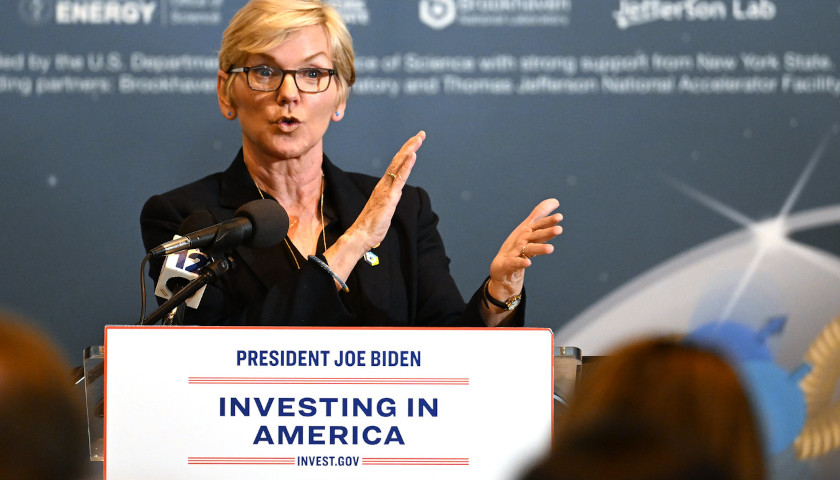by Roger Kimball
I’ve written many times that I thought Donald Trump would win the 2020 election. The question always was whether he would win it beyond the margin of fraud and litigation.
Did he? It’s touch and go. Television networks and even some foreign heads of state tell us Joe Biden won the election. The electors have yet to be appointed and meet to vote. Still, the forces arrayed against Trump are formidable. It’s not just, as Joe Biden bragged, that the Democrats had put together “the most extensive and inclusive voter fraud organization in the history of American politics.” That does appear to have been the case.
But if Donald Trump loses, it won’t only be because of that “extensive and inclusive” organization. Perhaps more important is the ambient jelly in which that organization has operated. I mean the eructations of the swamp, or to give it a more cinematic name, “The Empire.”
Children in the United States are (or at least they used to be) told that in America, anyone can become president.
Of course, that has never really been true. At any given time, there are plenty of people who, for various reasons, could never become president. But the pleasing story did name a sort of half-truth that was also an ideal, an ideal that revolved around the effort to maintain a society that rewarded talent, ambition, and hard work more than it valued wealth, connections, or pedigree.
Donald Trump put that ideal to the test. The test failed.
Trump was the first candidate since Andrew Jackson really to challenge the dominant narrative. Trump was rich, which is a plus for candidates these days. But he came not just from the wrong sort of family, but also from the wrong consensus, the wrong universe of opinion and sentiment.
It was not so much his particular policies that were at issue. It was rather what he himself represented. Some people have banged on and on about Trump’s “character,” which they said was a bad character. But I do not believe that his character was ever really the issue. The issue was that he represented an existential threat to the governing consensus.
This consensus is not fundamentally Democratic or Republican. It is not really even left-wing or conservative. John Fonte came close to identifying it with his phrase “transnational progressivism.” The “transnational” part was just as important as the “progressive” element, not least because the definition of “progressive” is always a mutable and hungry thing. Yesterday’s progressive ideas routinely become tomorrow’s reactionary throwbacks because the critical thing is not specific policies but specific attitudes.
To an extent not widely appreciated, politics drowns more and more in the imperatives of fashion. From the beginning, it was regularly pointed out that Trump’s cardinal sin was a matter of aesthetics, not substance.
I think that is right. And it helps explain why so successful a president—has anyone in history had a more successful first term than Donald Trump?—could still be so cordially hated by the credentialed elite, both in this country and abroad.
That elite has “gone beyond” such parochial affections as patriotism, national identity, and religious affiliation. To a large extent it has even “gone beyond” or at least redefined family. Donald Trump was a walking rebuke to every finer feeling with which they congratulated and fanned themselves. For four years, they stood together as one to emit a primal scream of repudiation. Nothing worked. Not the Russia collusion delusion, not the preposterous Ukrainian impeachment follies, not the dark talk about invoking the 25th Amendment, nothing.
Now, finally, their concerted assault against a U.S. presidential election may have done the trick. But there are three things to note.
First, the Empire really did strike back against Trump, deploying its “fully armed and operational battle station” of voter fraud against the president and the people who supported him.
But, second, no matter what happens with the presidential election itself, the result of its assault was not at all what was expected. No planets were vaporized. There was no “blue wave” redefining the national mood or direction. There was barely even a blue trickle.
In the run-up to the elections, Democrats were predicting a landslide for Biden. As of this writing, he is barely ahead—it’s a matter of a fraction of a percentage point—in most of the battleground states. Instead of making gains in the House, the Democrats lost at least 10 and maybe as many as 13 seats. And instead of flipping the Senate, the Republicans are very likely to wind up staying in control with 52 seats.
Some 73 million people voted for Donald Trump. They are not retreating in silence to their caves. They are galvanized with the MAGA spirit that Trump inculcated in the country and, except for a handful of soy boys, in the Republican Party. As I write, thousands upon thousands of people are descending upon Washington D.C. for a “million MAGA march.” There is the “Women for Trump” contingent, the “Stop the Steal” contingent, and more. These are the people who are fleeing Fox News, Twitter, Facebook, not to mention CNN, The New York Times, and the entire woke establishment to create a counterforce—a rebellion against—the Empire.
The narrative is a powerful thing. The consensus everywhere in polite society is that Biden won, Trump lost, and the globalist, anti-populist dispensation is poised to flood back into control. I think the people who believe that are about to be sorely disappointed, no matter what happens with the presidential vote tally.
And about that (and this is my third point), I suspect that Donald Trump may have the last laugh. Interviewed Friday by Byron York, the president outlined various scenarios by which he could overturn expectations and win the election. Maybe he is simply acting like the Spartans at Thermopylae: fighting bravely against impossible odds because it is the honorable thing to do. Maybe he sincerely believes he can win. Many people have bet against Donald Trump over the years. Most came to regret it.
He ended his interview with a sober piece of advice acknowledging this fact: “Never bet against me.”
– – –
Roger Kimball is editor and publisher of The New Criterion and the president and publisher of Encounter Books. He is the author and editor of many books, including The Fortunes of Permanence: Culture and Anarchy in an Age of Amnesia (St. Augustine’s Press), The Rape of the Masters (Encounter), Lives of the Mind: The Use and Abuse of Intelligence from Hegel to Wodehouse (Ivan R. Dee), and Art’s Prospect: The Challenge of Tradition in an Age of Celebrity (Ivan R. Dee).






Unlikely anything but the same old, same old will happen. The Republican Party has become as corrupt as the demarcate party and the only thing 99% in Washington are concerned with is covering for their friends and preserving a position in congress until retirement age. Trump lost because of the republican back stabbing, not the resistance from the demarcate party.